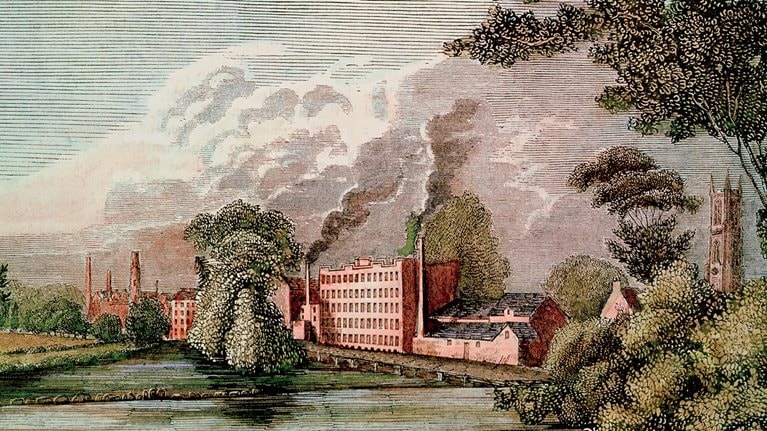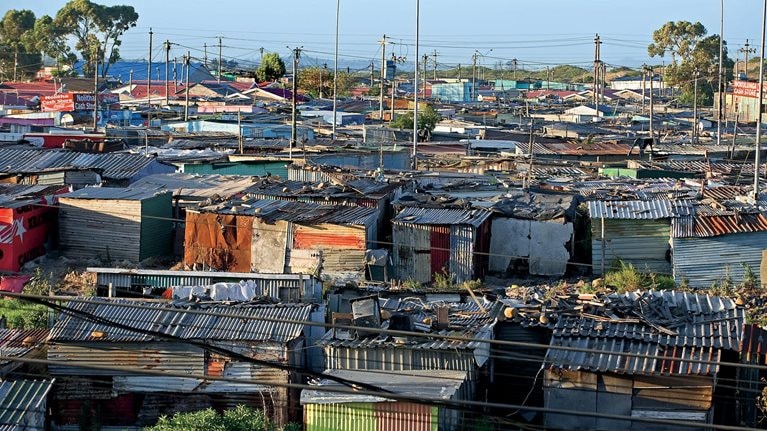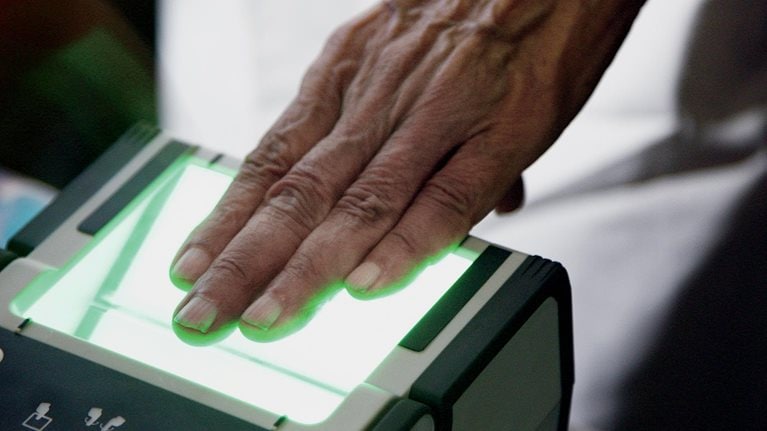Interview transcript
Moving the world into the formal economy
I am chairman of an organization, a nonprofit organization called the ILD, the Institute for Liberty and Democracy of Peru, that over time has specialized in explaining how you evolve from a society where the majority of trade, business, and assets are controlled through customary—shall we say, through unconventional—systems, rather than through law. How do you take that society and move it to the rule of law? Now that’s something you did, of course, in the United States and Europe, but it was in the 18th and 19th centuries.
But in the Third World, that’s where we are behind you today. Not in terms of automobiles and all that, because we’ve got the same things you do. Technology gets shared a lot. But societies can be left behind over time, or only part of the society moves into the rule of law and the rest are outside it, which then means that it’s the rule of law for a few that predominates over the anarchy of the informal economy, which is the rest. So we in the Institute for Liberty and Democracy learned how to move people from the informal sector to the formal one on the basis of some very interesting successes in Peru and a couple of other countries. And we’re basically 18th- and 19th-century specialists, because that’s when it happened in the United States, in Europe; actually, in the 20th century it was Japan. But what you have to remember about this is that people outside the legal system are the majority. There are seven billion people in the world, and those who are outside the legal system are five billion. So this is no marginal phenomenon. It’s sort of a big deal. When I referred to “we,” I’m talking about an organization that is catering to the majority who are not inside the legal system. And it isn’t only Third World countries; it also applies to the former Soviet Union. It applies to the Ukraine, where I believe that about 75 percent of the economy is outside the legal system.
When the market comes in, which is the division of labor, people understand that they can’t just operate at a family level; they need to collaborate at a broader level. And you have to specialize. That’s what the Industrial Revolution is all about; it’s people that have become interdependent over large areas. And that means they’re ready for the rule of law, because that’s happened to all of us who, one way or other, consider ourselves Westerners. And that’s where we think the Middle East has gone. It’s crossed a threshold. There’s no way that they can come back. They’ve got to build the rule of law.
A vast majority of entrepreneurs
Western society has a view of what entrepreneurs are or businessmen are, so people in the West might identify that with Wall Street, et cetera. And they’re not used to a very important insight, which we are used to in Third World countries—the majority of people in society are actually entrepreneurs, albeit illegal ones, albeit poor ones.
So many Western social movements go and try and help, for example, what they conceive to be the poorest and the most downtrodden. So they say, “We’re out here to help the unemployed.” Well, what if there are no unemployed? I mean, in many of these countries I’ve been to, when everybody said, “These are the unemployed,” you go and you talk to them and they’re not unemployed. They’re legally unemployed. But, illegally, they’ve got a business.
It’s very simple if you’re poor in a Third World country. If you don’t make an income in the first month, you’re dead in the second month. It’s very simple. So it’s very hard to be unemployed in a Third World country, because life takes place at another level. The sign of progress that I would like to see is that the body politic basically recognizes that the poor are an enterprising poor. There’s another way of putting it, probably shorter—that they’re not the problem; they’re the solution.
We’ve got overwhelming arguments. I mean, after the Arab Spring, the United States generally comes out and says, you know, “We’re going to give about another $1 billion or $2 billion.” And the IMF1 says, “You know, we might just do another billion, as well.” That already makes $3 billion. That’s a lot of money. But the value of informal assets in Egypt, just buildings and land, is nearly $400 billion. In other words, it’s 99 times more than you’re promising to give. The owners of these assets really are the solution because they’ve built, over time, things—but, by the way, they’re paperless. Imagine that they’re in paper.
Let’s say that this office in which we are, whatever you own here, is worth $100 million, and I say, “I want to buy it.” We all agree that $100 million is a good price, and we sign the deal. Then I say, “The title, please.” And you say, “No title, but all the neighbors know that it’s ours.” How much is it worth from then on? It might go down to $10 million. It might go down to zero.
So all of these assets that we’re talking about are paperless assets. What happens when, all of a sudden, these assets can be transferred, can be moved, and you know that when you buy, what you’ve got involves a transfer of control from the other person to you? I think it’s enormous what happens. That’s the story of the Industrial Revolution.
An Industrial Revolution
What I would like to see in the future is that everybody stops talking about this as if it’s a charity problem. It’s a social-, political-, economic-transformation issue. It’s the Industrial Revolution—not understood as chimney stacks, but understood as the moment when, basically, most human beings decide that they’re not going to live under the feudal system, the patrimonial system, and that the times of tribes with obelisks and asterisks are over.
We are now the good society of the world. We’re interdependent. That’s going to bring us a lot of wealth, and we can only deal with each other through abstract means like the law. So if there’s some concrete movement in that direction, I will have seen at least what many people talked about in the 19th century. That’s my vision of where we’re going.
The way I see it is that property creates interest in providing information, because that’s the way people are going to safeguard what they control. You’ve got to put it on record. And once it becomes cheaper to put things on record than not to have them on record, you build up knowledge.


